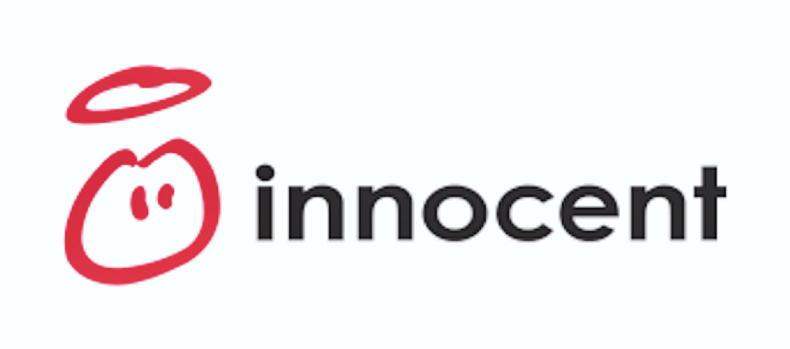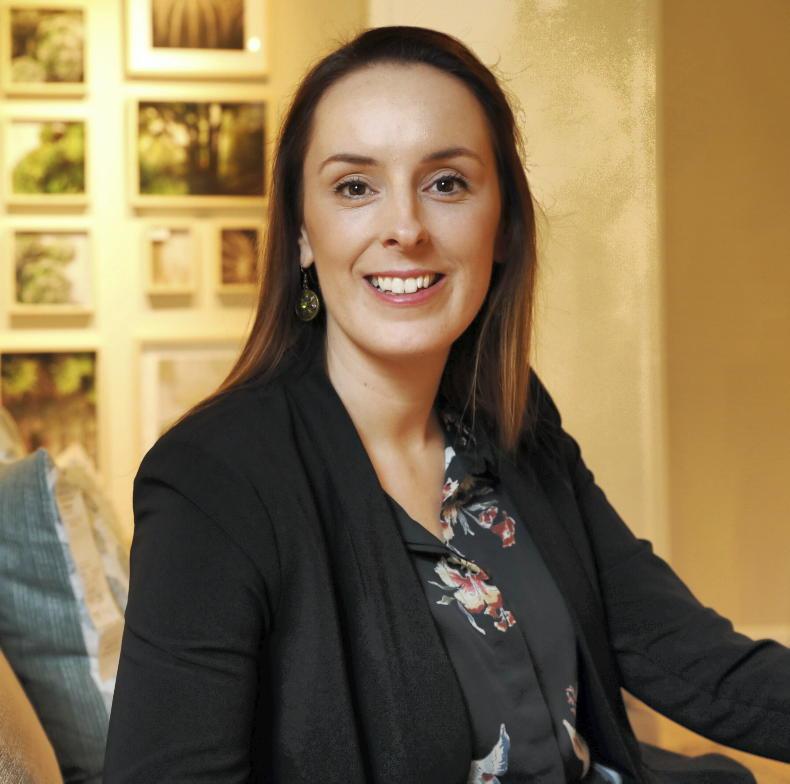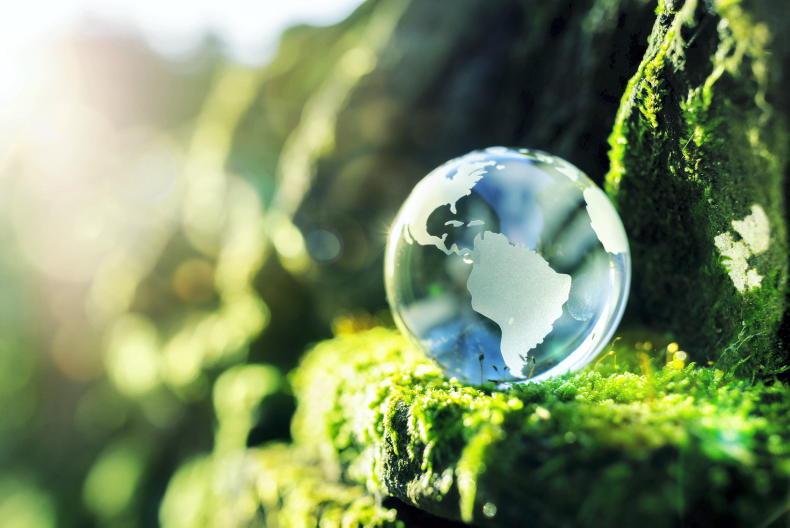Some time ago, I attended an event organised by Innocent, the smoothie company whose products are found on supermarket shelves throughout the country. They planned a day of hiking and forest bathing for a group of media as a pre-launch to their Innocent Big Rewild campaign.
The campaign officially launched the first weekend in July with a family-friendly event Innocent called their Big Rewild School. That day, the sold-out event saw families come together to hike in the Wicklow Mountains with the Big Rewild brand ambassador, Diarmiud Gavin. With this initiative, the company aims to educate consumers about nature and rewild two million hectares of land by 2025. They also aim to be fully carbon neutral – both through their own sustainability efforts and by off-setting their remaining emissions – by the same year.
It’s wonderful to see a large business like Innocent take corporate responsibility seriously, but it’s worth noting that their efforts are also part of a larger global initiative: they are a certified “B Corporation”.
What is a B Corporation?
B Corporation (or B Corp) certification takes a deep look at the social and environmental impact of a business. Being B Corp certified means your business is meeting their extremely high standards of accountability and transparency.
According to the movement’s website, B Corp certification involves:
Achieving a B impact assessment score of 80 or higher (a high score demonstrates a strong commitment to social and environmental protection).Legally changing corporate governance structures to be accountable to all stakeholders (not just shareholders).Proving transparency by allowing performance information to be publicly available on their B Corp profile.Innocent’s experience
Keith Nelson is the country manager for Innocent Ireland. He says becoming a B Corp business was not easy or quick, but it was rewarding.

Innocent logo
“We’re delighted to be part of the B Corp movement,” he says. “To be certified, the company is measured on a whole host of things, but essentially it’s measured across its entire social and environmental impact. That’s great because it allows us to demonstrate that we’re genuinely a business that’s good all around.”
Today, most of Innocent’s smoothies and juices are made in their new carbon neutral blending facility in The Netherlands. The company also gives 10% of their profits to charity through the Innocent foundation. While their ingredients are found around the globe (think exotic fruits and vegetables), they aim to source their ingredients responsibly and be ethical employers.

Keith Nelson is the country manager for Innocent Ireland
All of these things are considered when becoming B Corp certified. The more a company strives for environmental and social sustainability, the higher their assessment score will be.
“It’s about balancing people with the planet and profitability,” Keith explains. “We really want to show we can be part of a movement which inspires others, and also prove the business can make money and be a force for good as well.
“Being transparent about our progress is important to us that’s why we publicly share our progress against our sustainability commitments (eg, 100% of plastic packaging will be reusable or recyclable by 2025) in our annual impact report,” he adds.
Continuous assessment
B Corp isn’t a one-time certification – businesses have to be reassessed every few years. Innocent was assessed in 2018 and then again in 2021. Keith says it was exciting to see their improvement from their most recent assessment.
“We’re really happy we improved our position to 105 points, which is 25 points above the threshold to get into B Corp,” he smiles. “It’s about continuous improvement, and we’re ahead of our targets to where we thought we would be at this time.”
It’s difficult to assess a business’ social and environmental standards, so B Corp assessors continuously aim to improve their methods to ensure their certification is having an actual impact.
“We know our drinks are in demand and we have a role to play in how we deliver them,” Keith says. “B Corp keeps us focused on doing business the right way.
“Strong Roots, Danone, Ben and Jerry’s and Ella’s Kitchen [are all B Corp] – the movement is growing and it’s a great thing to see.”
Is certification enough?
Ali Sheridan is a Dublin-based sustainability and climate adviser who specialises in corporate climate leadership. She says when B Corp was first established in the early 2000s, it was a key driver for businesses to make meaningful moves toward sustainability and, for this reason, its work should be applauded.

Ali Sheridan is a Dublin-based sustainability and climate adviser who specialises in corporate climate leadership
“I think there’s a lot of credit needed for B Corp for making it a ‘top of the agenda’ issue the way they did,” she explains. “They brought thousands of companies through the process in what is a voluntary endeavour – and it’s not an easy one: there’s a lot of paperwork and a lot of issues that have to be covered. It’s quite holistic, which is another positive – you’re looking at workers, governance, customers and societal issues, as well. But saying that, things are changing very rapidly when it comes to corporate sustainability.
“While B Corp has done amazing work and continues to do so, I think there’s another jump to make now to make sure it’s in line with climate and biodiversity science. B Corp, like all industry movements, needs to be asking: what is the future of our business in a world of planetary limits?”
Impact
While there are people within business who want to make a tangible difference in terms of emissions reductions, climate and social responsibility, Ali says these certifications, equally, aren’t neutral – they have the ability to attract custom and can work well as a marketing tool. In this regard, there should be an increased responsibility on certification bodies to back up what they’re doing in terms of actual impact.
“What we know now – with nearly all certifications – is there are gaps there in terms of what they’re trying to do and the actual impact they’re having,” Ali says. “We’re still tinkering with certifications; trying out incremental improvements. This would have been okay 10 years ago, but now we’re working from science-based targets and planetary limits with a rapidly closing window of opportunity to get on top of this. Business response, as a whole, is not yet keeping pace with that.”
Regulation needed
So, should consumers be looking out for B Corp certifications in the supermarket? Ali believes we shouldn’t put that pressure on the consumer; the real issue is the fact that movements like B Corp continue to be voluntary.
“There are 400+ eco labels out there and most of us wouldn’t know more than three of them,” she says. “The goal should be that every product in the shop is sustainable. This brings up the point that, yes, we need to start doing a whole load of work around the climate transition, but we’re also going to have to talk about what we need to stop doing. And that might mean putting an end to voluntary industry schemes if they’re not backed up by regulation.”
Note: Innocent Smoothies was fully purchased by Coca Cola in 2013 but continues to operate independently.
Read more
Hometree: a charitable organisation with farmers and forests in mind
BiaSol- the innovative food business dreamed up by Athlone-based siblings
Some time ago, I attended an event organised by Innocent, the smoothie company whose products are found on supermarket shelves throughout the country. They planned a day of hiking and forest bathing for a group of media as a pre-launch to their Innocent Big Rewild campaign.
The campaign officially launched the first weekend in July with a family-friendly event Innocent called their Big Rewild School. That day, the sold-out event saw families come together to hike in the Wicklow Mountains with the Big Rewild brand ambassador, Diarmiud Gavin. With this initiative, the company aims to educate consumers about nature and rewild two million hectares of land by 2025. They also aim to be fully carbon neutral – both through their own sustainability efforts and by off-setting their remaining emissions – by the same year.
It’s wonderful to see a large business like Innocent take corporate responsibility seriously, but it’s worth noting that their efforts are also part of a larger global initiative: they are a certified “B Corporation”.
What is a B Corporation?
B Corporation (or B Corp) certification takes a deep look at the social and environmental impact of a business. Being B Corp certified means your business is meeting their extremely high standards of accountability and transparency.
According to the movement’s website, B Corp certification involves:
Achieving a B impact assessment score of 80 or higher (a high score demonstrates a strong commitment to social and environmental protection).Legally changing corporate governance structures to be accountable to all stakeholders (not just shareholders).Proving transparency by allowing performance information to be publicly available on their B Corp profile.Innocent’s experience
Keith Nelson is the country manager for Innocent Ireland. He says becoming a B Corp business was not easy or quick, but it was rewarding.

Innocent logo
“We’re delighted to be part of the B Corp movement,” he says. “To be certified, the company is measured on a whole host of things, but essentially it’s measured across its entire social and environmental impact. That’s great because it allows us to demonstrate that we’re genuinely a business that’s good all around.”
Today, most of Innocent’s smoothies and juices are made in their new carbon neutral blending facility in The Netherlands. The company also gives 10% of their profits to charity through the Innocent foundation. While their ingredients are found around the globe (think exotic fruits and vegetables), they aim to source their ingredients responsibly and be ethical employers.

Keith Nelson is the country manager for Innocent Ireland
All of these things are considered when becoming B Corp certified. The more a company strives for environmental and social sustainability, the higher their assessment score will be.
“It’s about balancing people with the planet and profitability,” Keith explains. “We really want to show we can be part of a movement which inspires others, and also prove the business can make money and be a force for good as well.
“Being transparent about our progress is important to us that’s why we publicly share our progress against our sustainability commitments (eg, 100% of plastic packaging will be reusable or recyclable by 2025) in our annual impact report,” he adds.
Continuous assessment
B Corp isn’t a one-time certification – businesses have to be reassessed every few years. Innocent was assessed in 2018 and then again in 2021. Keith says it was exciting to see their improvement from their most recent assessment.
“We’re really happy we improved our position to 105 points, which is 25 points above the threshold to get into B Corp,” he smiles. “It’s about continuous improvement, and we’re ahead of our targets to where we thought we would be at this time.”
It’s difficult to assess a business’ social and environmental standards, so B Corp assessors continuously aim to improve their methods to ensure their certification is having an actual impact.
“We know our drinks are in demand and we have a role to play in how we deliver them,” Keith says. “B Corp keeps us focused on doing business the right way.
“Strong Roots, Danone, Ben and Jerry’s and Ella’s Kitchen [are all B Corp] – the movement is growing and it’s a great thing to see.”
Is certification enough?
Ali Sheridan is a Dublin-based sustainability and climate adviser who specialises in corporate climate leadership. She says when B Corp was first established in the early 2000s, it was a key driver for businesses to make meaningful moves toward sustainability and, for this reason, its work should be applauded.

Ali Sheridan is a Dublin-based sustainability and climate adviser who specialises in corporate climate leadership
“I think there’s a lot of credit needed for B Corp for making it a ‘top of the agenda’ issue the way they did,” she explains. “They brought thousands of companies through the process in what is a voluntary endeavour – and it’s not an easy one: there’s a lot of paperwork and a lot of issues that have to be covered. It’s quite holistic, which is another positive – you’re looking at workers, governance, customers and societal issues, as well. But saying that, things are changing very rapidly when it comes to corporate sustainability.
“While B Corp has done amazing work and continues to do so, I think there’s another jump to make now to make sure it’s in line with climate and biodiversity science. B Corp, like all industry movements, needs to be asking: what is the future of our business in a world of planetary limits?”
Impact
While there are people within business who want to make a tangible difference in terms of emissions reductions, climate and social responsibility, Ali says these certifications, equally, aren’t neutral – they have the ability to attract custom and can work well as a marketing tool. In this regard, there should be an increased responsibility on certification bodies to back up what they’re doing in terms of actual impact.
“What we know now – with nearly all certifications – is there are gaps there in terms of what they’re trying to do and the actual impact they’re having,” Ali says. “We’re still tinkering with certifications; trying out incremental improvements. This would have been okay 10 years ago, but now we’re working from science-based targets and planetary limits with a rapidly closing window of opportunity to get on top of this. Business response, as a whole, is not yet keeping pace with that.”
Regulation needed
So, should consumers be looking out for B Corp certifications in the supermarket? Ali believes we shouldn’t put that pressure on the consumer; the real issue is the fact that movements like B Corp continue to be voluntary.
“There are 400+ eco labels out there and most of us wouldn’t know more than three of them,” she says. “The goal should be that every product in the shop is sustainable. This brings up the point that, yes, we need to start doing a whole load of work around the climate transition, but we’re also going to have to talk about what we need to stop doing. And that might mean putting an end to voluntary industry schemes if they’re not backed up by regulation.”
Note: Innocent Smoothies was fully purchased by Coca Cola in 2013 but continues to operate independently.
Read more
Hometree: a charitable organisation with farmers and forests in mind
BiaSol- the innovative food business dreamed up by Athlone-based siblings









 This is a subscriber-only article
This is a subscriber-only article










SHARING OPTIONS: